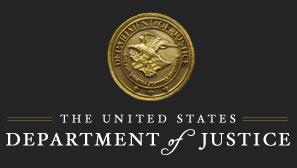
Chinese National Sentenced to Three Years for Attempting to Illegally Export High-Grade Carbon Fiber to China
Fuyi Sun, aka “Frank,” 53, a citizen of the People’s Republic of China (China), was sentenced to three years in prison for violating the International Emergency Economic Powers Act (IEEPA) in connection with a scheme to illegally export to China, without a license, high-grade carbon fiber, which is used primarily in aerospace and military applications. Sun pleaded guilty on April 21.
Acting Assistant Attorney General for National Security Dana J. Boente and Acting U.S. Attorney Joon H. Kim for the Southern District of New York made the announcement. U.S. District Judge Alvin K. Hellerstein issued the sentence.
“Today, Sun is being held accountable for attempting to procure high grade carbon fiber – a material which has dual aerospace and defense applications – for a source he identified as the Chinese military,” said Acting Assistant Attorney General Boente. “Identifying and prosecuting those who seek to violate IEEPA and other laws designed to protect our strategic commodities from those who may wish us harm remains a top priority of the National Security Division.”
“For nearly five years, Fuyi Sun tried to skirt U.S. export laws to obtain high-grade carbon fiber for the Chinese government. He spent thousands of dollars and took years of covert actions to avoid detection of his plan to purchase this highly protected material,” said Acting U.S. Attorney Kim. “Unbeknownst to Sun, however, he wasn’t making a deal with an unscrupulous company – he was dealing with undercover federal law enforcement agents, who foiled his clandestine plot.”
According to the allegations contained in the Complaint and Indictment filed against Sun, and statements made in court filings and proceedings in open court:
Since approximately 2011, Sun has attempted to acquire extremely high-grade carbon fiber, including Toray type M60JB-3000-50B carbon fiber (M60 Carbon Fiber). M60 Carbon Fiber has applications in aerospace technologies, unmanned aerial vehicles (commonly known as drones) and other government defense applications. Accordingly, M60 Carbon Fiber is strictly controlled for nuclear non-proliferation and anti-terrorism reasons. As part of these restrictions, the export of M60 Carbon Fiber to China without a license is prohibited.
In furtherance of his attempts to illegally export M60 Carbon Fiber from the U.S. to China without a license, Sun contacted what he believed was a distributor of carbon fiber – but which was, in fact, an undercover entity created by the Department of Homeland Security, Homeland Security Investigations (HSI) and “staffed” by HSI undercover special agents (the UC Company). Sun inquired about purchasing the M60 Carbon Fiber without the required license. In the course of his years-long communications with the undercover agents and UC Company, Sun suggested various security measures that he believed would protect them from “U.S. intelligence.” Among other such measures, at one point, Sun instructed the undercover agents to use the term “banana” instead of “carbon fiber” in their communications. Consequently, soon thereafter he inquired about purchasing 450 kilograms of “banana” for more than $62,000. In order to avoid detection, Sunalso suggested removing the identifying barcodes for the M60 Carbon Fiber, prior to transshipment, and further suggested that they identify the M60 Carbon Fiber as “acrylic fiber” in customs documents.
On April 11, 2016, Sun traveled from China to New York for the purpose of purchasing M60 Carbon Fiber from the UC Company. During meetings with the undercover agents on April 11 and 12, among other things, Sun repeatedly suggested that the Chinese military was the ultimate end-user for the M60 Carbon Fiber he sought to acquire from the UC Company, and claimed to have personally worked in the Chinese missile program. Sun further asserted that he maintained a close relationship with the Chinese military, had a sophisticated understanding of the Chinese military’s need for carbon fiber, and suggested that he would be supplying the M60 Carbon Fiber to the Chinese military or to institutions closely associated with it.
On April 12, 2016, Sun agreed to purchase two cases of M60 Carbon Fiber from the UC Company. On that date, Sun paid the undercover agents purporting to represent the UC Company $23,000 in cash for the carbon fiber, as well as an additional $2,000 as compensation for the risk he believed the UC Company was taking to illegally export the carbon fiber to China without a license. Sun was arrested the next day.
***
Mr. Boente and Mr. Kim praised the extraordinary investigative work of the New York Field Office of the Department of Homeland Security, Homeland Security Investigations; the New York Field Office of the Department of Commerce, Bureau of Industry and Security, Office of Export Enforcement; and the Northeast Field Office of the Department of Defense, Defense Criminal Investigative Service. Mr. Kim also thanked the Counterintelligence and Export Control Section of the National Security Division.
Assistant U.S. Attorneys Matthew Podolsky, Patrick Egan and Nick Lewin of the Southern District of New York, and Trial Attorney David Recker of the Counterintelligence and Export Control Section of the National Security Division are prosecuting the case.
